29 have author last names that start with P have author last names that start with P
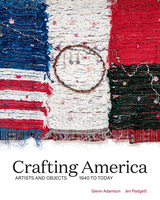
Craft is a diverse, democratic art form practiced by Americans of every gender, age, ethnicity, and class. Crafting America traces this expansive range of skilled making in a variety of forms, from ceramics and wood to performance costume and community-based practice. In exploring the intertwining of craft and American experience, this volume reveals how artists leverage their craft to realize the values of life, liberty, and the pursuit of happiness.
Accompanying an exhibition of the same title organized by Crystal Bridges Museum of American Art, Crafting America features contributions from scholars that illuminate craft’s relationship to ritual and memory, personal independence, abstraction, and Native American histories. The richly illustrated catalog section—with more than a hundred color images accompanied by lively commentary—presents a vivid picture of American craft over the past eight decades, offering fresh insights on the relationships between objects.
Building upon recent advances in craft scholarship and encouraging more inclusive narratives, Crafting America presents a bold statement on the vital role of craft within the broader context of American art and identity.

Winner, 2019 Miller Williams Poetry Prize
“We are the happy riders on the stream of Padua’s consciousness . . . a smart, sympathetic mind at work.”
—Billy Collins
Drawing on the spirit of New York City in decades past, A Short History of Monsters presents the sins and obsessions of a poet nimble in beat and slam traditions. In his first full-length collection, Jose Padua wrestles with an American dream interrupted by failure, excess, and other nightmares. Often brash and unruly, these poems range from recollections of lost, drunken days to unadorned manifestations of hope. Throughout, the speaker redefines his relationship to pop culture, praising it, skewering it, and mourning it by turns.
The poems that make up A Short History of Monsters tend toward both dark humor and epiphany, diving deeply into their own despair and rising up again with existential absurdity. This is a poetry that gets down into the grit and grime of the real world, digging out a space to experience being alive as miraculous in and of itself.
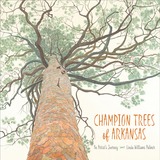
In Champion Trees of Arkansas, Linda Williams Palmer explores the state’s largest trees of their species, registered with the Arkansas Forestry Commission as “champions.” Through her beautiful colored-pencil drawings, each magnificent tree is interpreted through the lens of season, location, history, and human connection.
Readers will get to know the cherrybark oak, rendered in fall colors, an avatar for the passing of seasons. The sugar maple, with its bare limbs and weather-beaten trunk, stands sentry over the headstones in a confederate cemetery. The 350-year-old white oak was once dubbed the Council Oak by Native Americans, and the post oak, cared for by generations of the same family, has its own story to tell.
Palmer travelled from Delta swamps to Ozark and Ouachita mountain ridges over a seven-year period to see and document the champions and to talk with property owners and others willing to share the stories of how these trees are beloved and protected by the community, and often entwined with its history. Champion Trees of Arkansas is sure to inspire art and nature lovers everywhere.
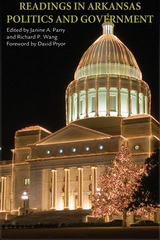
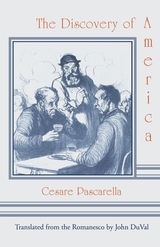
Winner of the Harold Morton Landon Translation Award from the Academy of American Poets
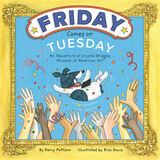
Winner, 2022 Susannah DeBlack Award, Arkansas Historical Association
The delightful story of Friday, a dog who discovers that the world of art is filled with many wonderful friends.
A dog in an art museum? Maybe not most dogs, but Friday goes to the museum every Tuesday to visit his friends. One day Friday must say goodbye for the winter. Join the fun as Friday trots through the galleries, taking photos and saying goodbye to Maman the spider, Rosie the Riveter, George Washington, and many others.
Looking back on his day, Friday realizes that the works of art in a museum are more than just bronze and steel, paint and canvas, ink and paper. Instead, the art connects him—and us—to a diversity of cultures, stories, and dreams.
Through the art collection at Crystal Bridges, all of us—even a dog—become part of the American experience.
Lexile Level: 570L

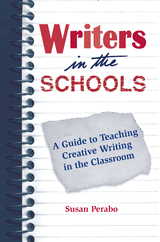
The lesson in this valuable text is that the imagination is the greatest tool a student possesses. Instead of lectures, the book relies on hands-on exercises and time tested activity plans that start students writing within minutes of discussing the basics of the writing process. Included are dozens of ideas to spark student creativity and hone rough drafts into finished poems and short stories.
The chapters proceed from a beginning level through intermediate and advanced levels and are useful to students in any grade from elementary through high school. Written and compiled by Susan Perabo, a former Writers in the Schools director, this volume is both a wonderful aid to teachers wishing to expand their classroom strategies in language arts and a perfect guide for writing program participants as they work with children to encourage powerful written expression in every discipline.

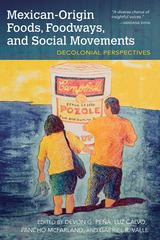
This collection of new essays offers groundbreaking perspectives on the ways that food and foodways serve as an element of decolonization in Mexican-origin communities.
The writers here take us from multigenerational acequia farmers, who trace their ancestry to Indigenous families in place well before the Oñate Entrada of 1598, to tomorrow’s transborder travelers who will be negotiating entry into the United States. Throughout, we witness the shifting mosaic of Mexican-origin foods and foodways in the fields, gardens, and kitchen tables from Chiapas to Alaska.
Global food systems are also considered from a critical agroecological perspective, including the ways colonialism affects native biocultural diversity, ecosystem resilience, and equality across species, human groups, and generations.
Mexican-Origin Foods, Foodways, and Social Movements is a major contribution to the understanding of the ways that Mexican-origin peoples have resisted and transformed food systems. It will animate scholarship on global food studies for years to come.

This two-volume work includes nearly two hundred primary documents and images that narrate many aspects of United States history from the period before European contact and colonization through the twenty-first century. The sources assembled capture the voices of Americans of varied age, race, ethnicity, and gender, historical actors who represent not only diverse subject positions but also a wide variety of belief systems and varied circumstances. Combined with interpretive headnotes and discussion questions, the layered approaches of the contributors deliver an unusually complex and rich portrait of the American past while also offering readers glimpses of the many dimensions of the historians’ craft.

Containing Multitudes: A Documentary Reader of US History provides nearly two hundred primary documents that narrate aspects of US history from the period before European contact through the twenty-first century. Presented in two volumes, this curated selection—including letters, literature, journalism, and visual art—provides access to historical voices from a wide range of subject positions and belief systems.
Designed for US history survey courses, this reader provides both analysis and instructional support in the form of brief introductory essays and questions to promote student discussion and reflection. Containing Multitudes not only conveys a rich and complex portrait of the American past but also offers readers valuable insight into the many dimensions of the historian’s craft.

Named one of New York Public Library's Best Books, 2023
Winner, 2023 Miller Williams Poetry Prize
To Be Named Something Else is a high-spirited celebration of Black matriarchy and lineage—both familial and literary. Centering the coming-of-age of Black femmes in Harlem, Shaina Phenix’s debut collection, in the words of series judge Patricia Smith: “enlivens the everyday—the everyday miraculous, the everyday hallelujah, the numbing everyday love, the everyday risk of just being Black and living. There is absolutely nowhere these poems aren’t—we’re dancing and sweating through our clothes, terminating a pregnancy in a chilled room of white and silver, finally gettin’ those brows threaded and nails did, practicing gettin’ the Holy Ghost, sending folks to their rest, having babies, listening carefully to the lessons of elders, and sometimes even talking back. . . . To Be Named Something Else is a book of reason and reckoning, substance and shadow. It’s tender and wide-aloud and just about everything we need right now, when both reason and reckoning are in such woefully short supply.” Phenix’s full-throated poetry, with its “superlative combination of formalism and funk,” is assuredly something else.
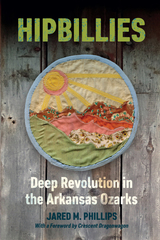
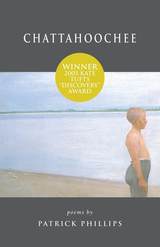
Winner of the 2005 Kate Tufts Discovery Award.
From the author of Blood at the Root: A Racial Cleansing in America and the National Book Award finalist Elegy for a Broken Machine: Poems, here is the first collection from award-winning poet Patrick Phillips.
A river runs through Patrick Phillips’s collection Chattahoochee, and through a family saga as powerful and poignant as the landscape in which it unfolds. Here are tales of a vanished South, elegies for the lost, and glimpses of what Flannery O’Connor called the “action of grace in territory held largely by the devil.” In language delicate and muscular, tender and raw-boned, Phillips writes of family, place, and that mythic conjunction of the two we call home.
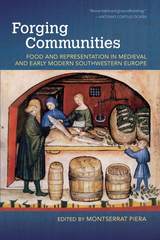
This interdisciplinary study of food in medieval and early modern communities connects threads of history conventionally examined separately or in isolation. The intersection of foodstuffs with politics, religion, economics, and culture enhances our understanding of historical developments and cultural continuities through the centuries, giving insight that today, as much as in the past, we are what we eat and what we eat is never devoid of meaning.
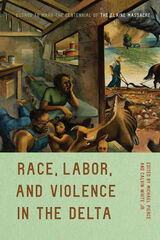

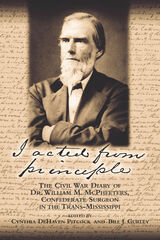
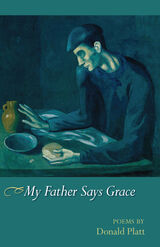
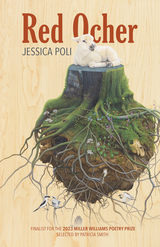
Finalist, 2023 Miller Williams Poetry Prize
In Jessica Poli’s Red Ocher, the wild mortality of the natural world merges with melancholic expressions of romantic loss: a lamb runt dies in the night, a first-time lover inflicts casual cruelties, brussels sprouts rot in a field, love goes quietly and unbearably unrequited. This is an ecopoetics that explores the cyclical natures of love and grief, mindful that “there will be room for desire / again, even after it leaves / like a flood receding, / the damaged farmhouses / and washed-away bridges / lying scattered the next day / amid silt and debris.” Throughout, Poli’s poems hold space for the sacred—finding it in woods overgrown with thorny weeds, in drunken joy rides down rural roads, and in the red ocher barns that haunt the author’s physical and emotional landscapes.


Belonging with the work of Gabriel Garcia Márquez, Carlos Fuentes, and Julio Cortázar, this richly drawn story runs the gamut from lyrical to violent to pastoral. Originally published in 1975, Cavalls cap a la fosca was hailed by the public and critics alike as perhaps the most incisive Catalan novel since the Spanish Civil War. It was honored with four prestigious literary prizes, including the 1976 Spanish Literary Critics’ Award
In Horses into the Night, the narrator’s search for his roots—especially for his father—among the myths, stories, lies, and truths of his family and hometown, strikes a universal chord. As the plot becomes increasingly textured with piracy, smuggling, the Inquisition, morbid familial relationships, eroticism, and occult occurrences, it is all but impossible to resist this epic story described by El Pais as a “Mediterranean novel flooded with light and bathed in darkness.”
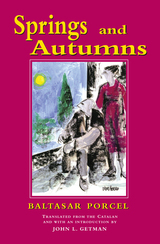
Springs and Autumns is a compelling novel that chronicles, through the voices of several family members, the intriguing history of an extended Majorcan family. The novel is set in Orlandis (a fictional version of Porcel’s hometown) on the island of Majorca. Even though the novel rises from this specific, exotic island setting, Springs and Autumns ultimately appeals to universal human emotions.
John German has captured the rhythm and poetic nature of Porcel’s prose in his translation of Springs and Autumns. Working from Porcel’s original Catalan and Spanish versions of the text, Getman manages to remain faithful to the feel and tone of Porcel’s narrative while at the same time creating an exceptionally lucid English version.
Although the entire novel takes place as the family gathers at Taltavull Hall for a Christmas Eve dinner, the reader is conveyed to places as far away as South America and Asia, learning along the way about murder, love, rape, incest, travel, discovery, regret, and forgiveness. Porcel accomplishes this through a narrative strategy that pieces together a complex mosaic of the family’s history, with each new narrative layer adding insight to the previous narratives, ultimately creating a complex and engaging novel.


The poems of Dannye Romine Powell take ordinary moments and transform them into rare and luminous epiphanies. These poems have the air of real places and real people who go about the perilous business of living in this world.
Powell is a poet of candor and clarity, and she has a wit that moves in surprising ways. These are poems not only to admire, but to relish and share; the pleasure they bring is closer to that of an old leather jacket than of a new pair of shoes. Powell writes like no one else, and she’s a joy to read.
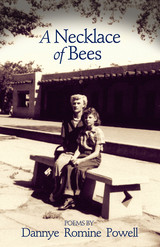
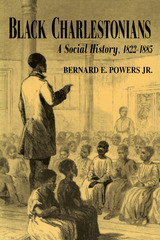
This revisionist work delineates the major social and economic contours of the large black population in the pivotal Southern city of Charleston, South Carolina., historic seaport center for the slave trade. It draws upon census data, manuscript collections, and newspaper accounts to expand our knowledge of this particular community of nineteenth-century black urbanites.
Although the federal government codified the rights of African-Americans into law following the Civil War, it was the initiatives taken by black men and women that actually transformed the theoretical benefits of emancipation into clear achievement.
Because of its large free black population, Charleston provided a case study of black social class stratification and social mobility even before the war. Reconstruction only emphasized that stratification, and Powers examines in detail the aspirations and concessions that shaped the lives of the newly freed blacks, who were led by a black upper class tat sometimes seemed more inclined to emulate white social mores than act as a vanguard for fundamental social change.
Unlike most Reconstruction studies, which concentrate on politics, Black Charlestonians explores the era’s vital socioeconomic challenges for blacks as they emerged into full citizenship in an important city in the South.
Choice’s 1996 Outstanding Academic Books List
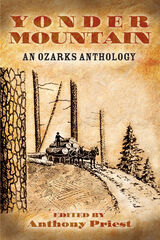
READERS
Browse our collection.
PUBLISHERS
See BiblioVault's publisher services.
STUDENT SERVICES
Files for college accessibility offices.
UChicago Accessibility Resources
home | accessibility | search | about | contact us
BiblioVault ® 2001 - 2024
The University of Chicago Press









